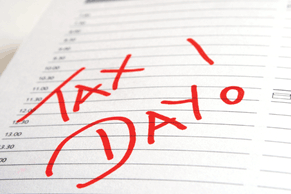Paper filing date approaching fast
The standard filing date for a personal tax return is 31 January. However, if you submit paper returns you need to do it earlier. What is the paper filing date, and how can HMRC’s new videos help if you need to remove yourself from self-assessment?

Currently, the self-assessment system is mainly processed in arrears, i.e. returns and payments are due after the end of the tax year. Most taxpayers have a filing deadline of 31 January after the end of the relevant tax year, so have almost ten months to gather and report their information. However, if you complete a paper return you only get until 31 October. You therefore have less than two weeks to get the return to HMRC.
Before you do, you may want to review your circumstances to see if you still need to be in self-assessment at all. For example, if you have ceased a claim to child benefit due to the high income child benefit charge, or were self-employed but have ceased trading. HMRC has published two videos explaining how to withdraw online, one for self-employed and one for others.
Related Topics
-
HMRC reminds employers about payrolling benefits deadlines
HMRC is reminding employers of key dates and preparations ahead of the transition to real-time payrolling of benefits in kind (BiKs). With an important voluntary registration deadline approaching, what do payroll teams need to know?
-
Why do frozen mileage rates affect VAT?
Your business pays a fixed mileage allowance to staff who use their private cars for business travel. The rates published by HMRC have been frozen since 2011 but is this relevant to determine how much input tax you can claim on the payments?
-
HMRC restarts direct recovery of tax debts from bank accounts
HMRC has resumed use of its Direct Recovery of Debts (DRD) powers, enabling it to recover unpaid tax directly from the bank accounts of businesses and individuals who have ignored repeated attempts to settle outstanding liabilities. What does this mean in practice for business owners and directors?